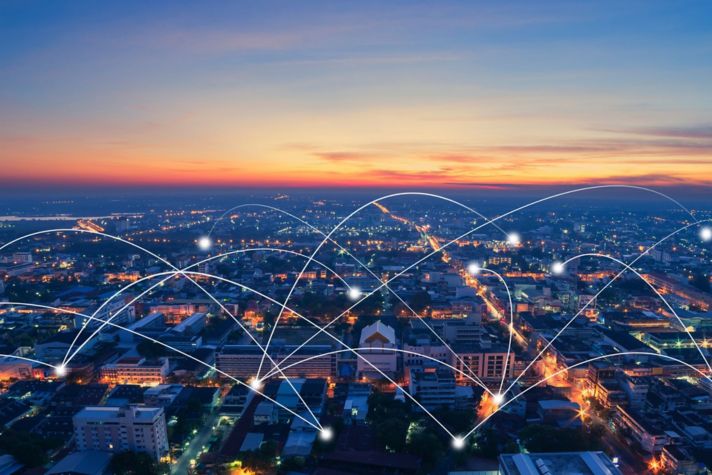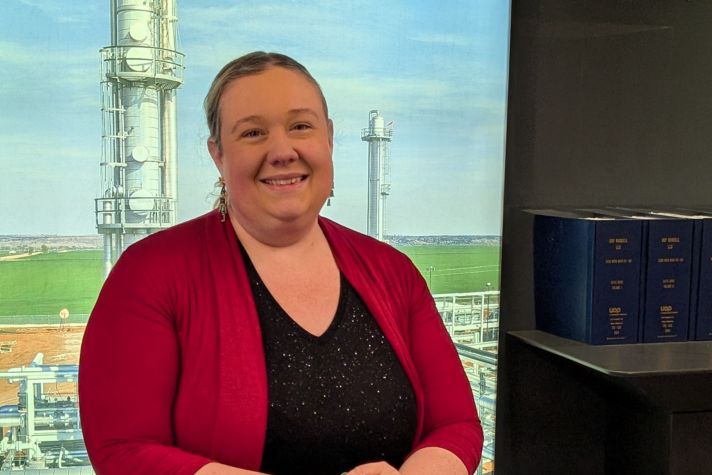-
Global
-
Africa
-
Asia Pacific
-
Europe
-
Latin America
-
Middle East
-
North America
- |
- BUSINESSES
- |
- Contact
- |
-
Global
-
Africa
-
Asia Pacific
-
Europe
-
Latin America
-
Middle East
-
North America
- |
- BUSINESSES
- |
- Contact
- |
You are browsing the product catalog for
You are viewing the overview and resources for
- News
- COP27: Our Role in Innovation for Climate Action
COP27: Our Role in Innovation for Climate Action
This year’s United Nations Climate Change Conference theme was “delivering for people and the planet.” Here’s a glimpse at how we’re helping to do that at Honeywell – and why the time is now for collaboration and cooperation among other public and private entities.
Delegates from the public and private sectors are preparing for the United Nations Climate Change Conference (COP), the largest annual gathering on climate action.
This year’s conference, COP27, was held November 6 through 18 in Sharm el-Sheikh, Egypt.
Khaled Hashem, Honeywell’s Egypt and North Africa president, spoke about the collaboration he hopes will be fostered at COP this year – as well as the significance of the host location, as Egypt is the first of two Middle East and North Africa (MENA) nations to host COP in the next two years. COP28 is set to take place in the United Arab Emirates in 2023.
“The region last played host to COP in 2012, and much has changed since then, not least a broader focus on specific threats that countries across MENA face if climate change continues at its current pace,” said Hashem. “The time is now for the public and private sectors to come together to tackle these challenges.”
Hashem added, “COP27 represents the perfect opportunity for the public sector to advance the regulatory frameworks, financial structures and other policies that create the market conditions for technology innovation to flourish.”
Here's a glimpse at some of the ways Honeywell is helping to drive sustainable transformation and how innovation plays a leading role:
Energy evolution in the air travel industry
The UN International Civil Aviation Organization has committed to a goal of decarbonizing the international aviation sector by 2050.
To achieve a more sustainable air travel industry in the coming decades, there’s a growing need to produce renewable energy and alternative fuel sources more efficiently and at scale.
Enter Honeywell’s ethanol-to-jet (ETJ) process, which is designed to help make the production of SAF more cost-efficient.
Depending on the type of ethanol feedstock used, jet fuel produced with the ethanol-to-jet process can reduce greenhouse gas emissions by 80% on a total lifecycle basis, compared to conventional, petroleum-based jet fuel.
Our Ecofining™ process is also available to produce renewable jet fuel from feedstocks, such as animal fats or vegetable oils.
Beyond the development of SAF, hydrogen fuel cells are a clean alternative to gasoline and diesel engines and are available today from Honeywell to help power UAVs – uncrewed aerial vehicles – using electricity, water and heat.
Read more stories about other technologies that could help enable the energy transition in air travel and beyond.
More efficient buildings
Tackling global challenges in the commercial real estate industry is critical in addressing climate change.
Buildings need to be better for the planet, resilient and positive for the people who spend time in them, and owners and operators of buildings shouldn’t have to choose between occupant comfort and energy efficiency.
Our Buildings Sustainability Manager powered by Honeywell Forge is designed to help building owners and operators prioritize making their building more energy efficient while also optimizing indoor air to support occupant well-being.
The technology allows facilities leaders to manage indoor air quality and energy consumption based on real-time occupancy levels and space use.
Learn how building technologies are used at our corporate headquarters to help manage the building’s energy usage and indoor air quality.
Plastics circularity
The United Nations has identified the need to shift to a circular plastics economy as one of the critical steps to achieving the Paris Agreement.
According to the World Wildlife Foundation, many pollution hotspots, such as the Mediterranean, East China and Yellow Seas, and the Arctic sea ice are already exceeding ecologically dangerous thresholds of microplastic concentration – and plastic pollution in oceans is expected to quadruple by 2050.
One reason that plastic waste ends up in landfills and waterways is that traditional mechanical recycling technology tends to limit the kinds of plastics that can be recycled.
Engineers at Honeywell have developed UpCycle, an advanced, or chemical, recycling process technology, which takes plastics unsuitable for mechanical recycling and chemically breaks them down into a recycled polymer feedstock, which can be used to manufacture new, high-quality plastics.
UpCycle can contribute toward increasing by three times the amount of plastics that can be recycled relative to conventional incineration and landfilling.
Emissions reduction
Small molecules can make a big impact when it comes to reducing emissions. Historically, aerosols found in everyday products like hairspray and shaving cream, and refrigerants used to cool your cars, grocery store freezers and building HVAC systems, have contained high global warming potential (GWP) molecules.
The need for low-GWP alternatives has led Honeywell scientists to develop hydrofluoroolefin (HFO) technology that is used in the form of propellants, aerosols, blowing agents and refrigerants in our Solstice® line of products.
As stated in our 2022 Environmental, Social and Governance (ESG) Report, the use of Solstice® low-GWP products has helped avoid releasing 295 million metric tons of carbon dioxide into the atmosphere, which is equivalent to the potential emissions from energy used by more than 26 million homes for one year.
Listen to this podcast to learn about the science behind our low-GWP line of products.
At Honeywell, we are committed to achieving carbon neutrality across our facilities and operations by 2035. Learn more about our corporate sustainability goals, and explore our full 2022 ESG Report for more insights from our leaders and details about Honeywell’s environmental, social and governance progress.
Copyright © 2025 Honeywell International Inc.




